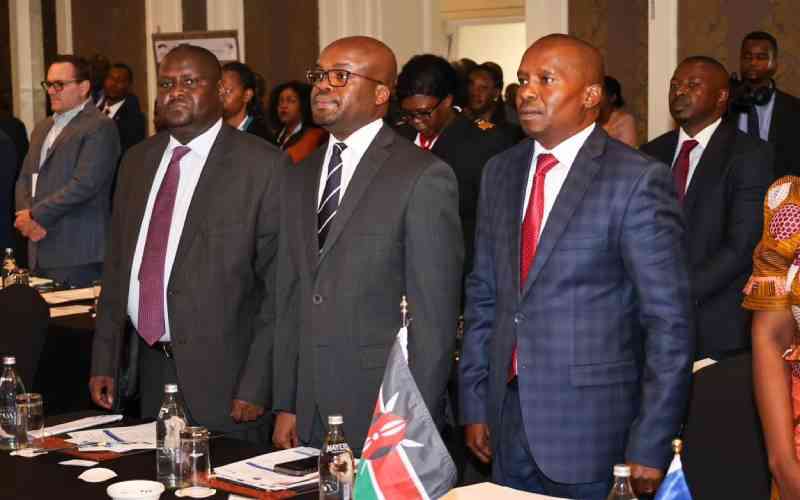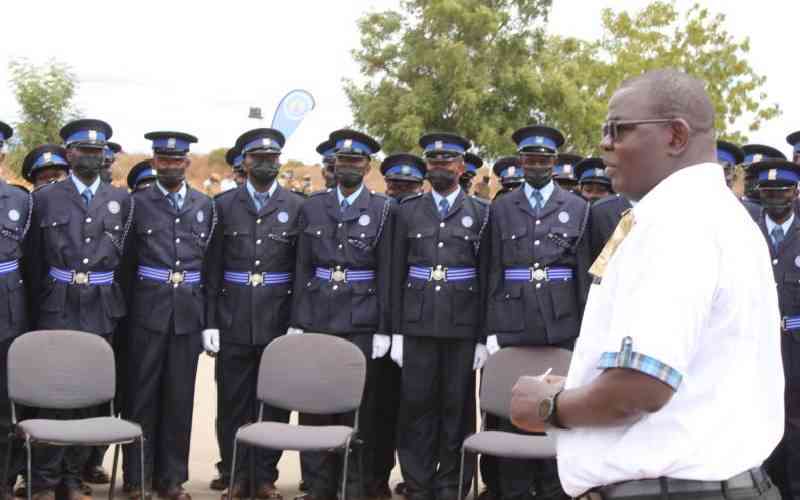ISTANBUL: A chance to revive a wrecked peace process with Kurdish rebels has been missed as Turkish President Tayyip Erdogan taps nationalist sentiment to consolidate his support after a failed military coup, the head of the pro-Kurdish opposition said.
Decrees during a state of emergency, including purges of tens of thousands of suspected coup plotters, may threaten the wider opposition, Selahattin Demirtas, co-chairman of the Peoples' Democratic Party (HDP), also said in an interview.
The failed intervention by a faction of the military to overthrow the government on July 15 killed more than 240 people and posed the gravest threat yet to Erdogan's 13 years in power before it was quickly put down by loyalist forces.
The government says the coup's mastermind is the reclusive Fethullah Gulen, 75, an Islamic preacher living in Pennsylvania, whose followers in the bureaucracy and security forces conspired to topple Erdogan and abolish parliament. He has denied any involvement in the coup attempt and has denounced it.
The coup's aftermath saw a short-lived lull in violence in the mainly Kurdish southeast, where thousands have been killed since a peace process, once spearheaded by Erdogan, collapsed in 2015. Neither the state nor the outlawed Kurdistan Workers Party (PKK) appears ready to parlay that into peace, Demirtas said.
"We have not seen any positive signals from either side ... that this will be an opportunity for resolution," Demirtas said.
"We could have used the coup as an opportunity for the peace process ...but Erdogan does not see this crisis as a way to democratise," said Demirtas, who also blames the Gulen movement for the coup attempt, as do other party leaders in parliament.
PROSECUTION OF KURDISH LAWMAKERS
Erdogan did put aside acrimony with other party leaders for talks in a sign of national unity after the coup, but excluded Demirtas because of the HDP's alleged links to the outlawed PKK. The snub was aimed at stoking nationalism, Demirtas said.
The HDP, parliament's third-biggest party, denies direct links with the autonomy-seeking PKK and promotes a negotiated end to the 32-year insurgency that has killed 40,000 people.
Prosecutors are pressing on with cases against HDP lawmakers for remarks they made after Erdogan successfully lobbied for them to be stripped of their parliamentary immunity in May. Demirtas received 12 new summons last week alone.
"The lifting of immunity needs to be examined after we faced the threat of a coup and parliament was bombed," said Demirtas, who sees the prosecutions as a strategy to push the HDP out of parliament and win the ruling AK Party more seats.
Also key to peace is permitting the PKK's jailed leader, Abdullah Ocalan, to relay messages indirectly to guerrillas, as he did in 2013 and 2014, Demirtas said. Ocalan, serving a life sentence in an island prison, has not had contact with family, lawyers or politicians since April 2015.
The post-coup crackdown has caused concern among Turkey's Western allies, who worry innocent people are among the 60,000 fired or detained for suspected links with Gulen. The state of emergency imposed on July 21 allows Erdogan to rule by decree.
Stay informed. Subscribe to our newsletter
"We have concerns emergency rule may increasingly be used against the true opposition in Turkey, those outside the Gulen movement," he said, adding it was "extremely suspect" the 100 or so journalists in detention or awaiting arrest were involved.
Some 10,000 soldiers have also been detained, which has raised concerns about a security vacuum as NATO member Turkey battles the PKK as well as Islamic State in Syria next door.
Among them are generals who commanded anti-PKK operations. Their removal does not indicate a dovish turn, Demirtas said.
"Erdogan...consistently provided political support to the generals who fueled this war," he said.
Demirtas echoed other critics who point to Erdogan's previous alliance with Gulen, with whom he once shared compatible Islamist visions for Turkey.
On Saturday, violence flared again when 35 PKK rebels were killed trying to storm a base in Hakkari province after clashes nearby killed eight soldiers, officials said.
 The Standard Group Plc is a
multi-media organization with investments in media platforms spanning newspaper
print operations, television, radio broadcasting, digital and online services. The
Standard Group is recognized as a leading multi-media house in Kenya with a key
influence in matters of national and international interest.
The Standard Group Plc is a
multi-media organization with investments in media platforms spanning newspaper
print operations, television, radio broadcasting, digital and online services. The
Standard Group is recognized as a leading multi-media house in Kenya with a key
influence in matters of national and international interest.
 The Standard Group Plc is a
multi-media organization with investments in media platforms spanning newspaper
print operations, television, radio broadcasting, digital and online services. The
Standard Group is recognized as a leading multi-media house in Kenya with a key
influence in matters of national and international interest.
The Standard Group Plc is a
multi-media organization with investments in media platforms spanning newspaper
print operations, television, radio broadcasting, digital and online services. The
Standard Group is recognized as a leading multi-media house in Kenya with a key
influence in matters of national and international interest.








